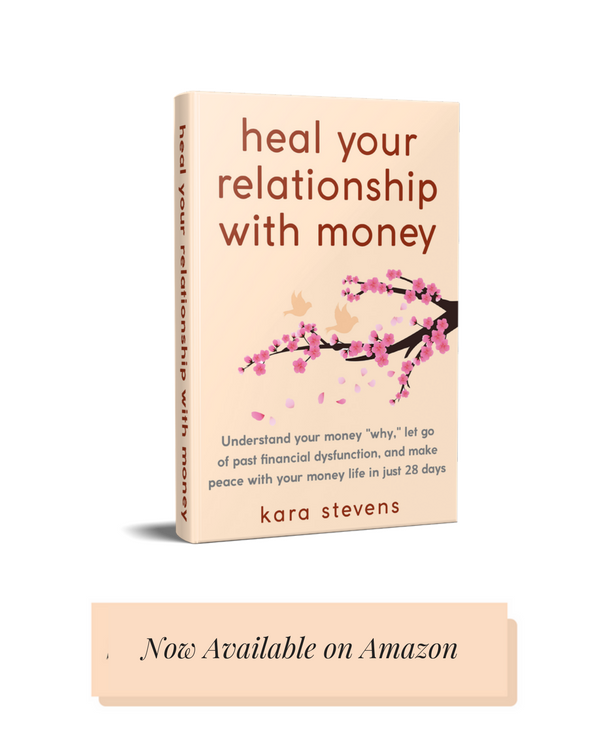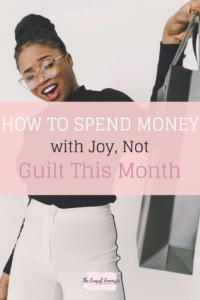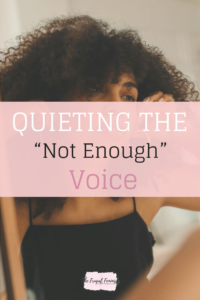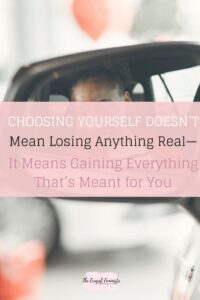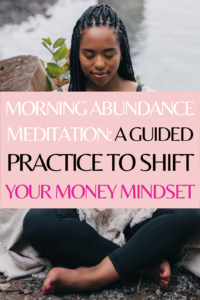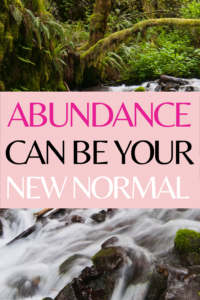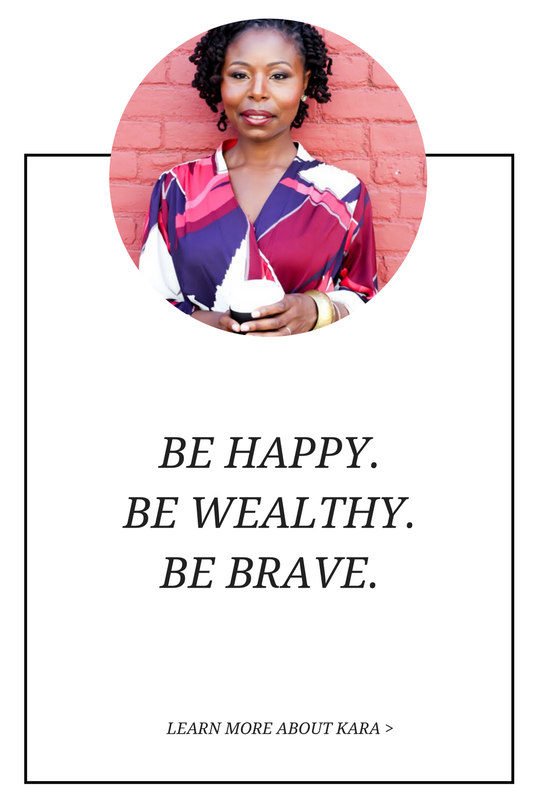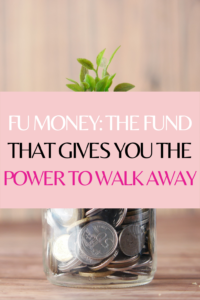There is NO question about whether or not I am a black woman, but the question of my identity is a COMPLETELY different subject all together.
Depending on when you ask me,why you ask me, or who is asking I may answer the questions “What are you?” or “What’s your background?” with any of the following: “Antiguan,” “American,” “native New Yorker,” “Antiguan-American,” “African-American”, “black,” “Caribbean-American,” “of African descent,” or plainly, “Yo Mama” (because that’s my business, not yours).
You see, this is because identity politics for the millions of first-generation Americans born to immigrant parents in the United States is a deep and wide terrain pebbled by very personal, subjective experiences. There is no clear-cut answer, to the question, “who are you?” for the many people like me straddling and juggling more than one self–just lots of opportunity for storytelling and story sharing.
In her novel Oh Gad, Joanne Hillhouse braves the challenge of writing about the complexity of dual identity by showing how one person reconciles those pieces of themselves through fight , family, and forgiveness.
I met her last year when I was visiting Antigua and most recently reached out to her for this interview.
Cop a squat.
(Hey, if you need a quick lesson on Antigua pronounced (An-tee-ga), take a look at the official website of the Government of Antigua & Barbuda: http://www.antigua.gov.ag/)
Read a lot, write a lot, embrace every opportunity to learn and grow, experience life. Beyond that, not standing in your own way. Not letting the things that scare you – be it the emotional or financial risks, the vulnerability and exposure, the fear, the cycle of rejection, the potential for failure, the uncertainty of success, the trickster within undermining your confidence – stop you. It requires—I’m learning every day—the fortitude and the creativity to keep moving forward in spite of everything that seems determined to stump or break you. You have to keep learning, building on your innate talent with the discipline of work and craft building. Faith. Support. Encouragement. That’s some of what it’s taken, as for the rest, I’m still discovering. Oh, mental health breaks; I’m discovering the importance of mental health breaks and taking the time to appreciate the moments that bring you happiness, small or big.
Now your book is published by Zane Presents, which most African-American women know to be their go-to source for all literature erotic, juicy, sloppy, sexy, and stank. 🙂 How did Oh Gad, a book about an Antigua-American girl returning to Antigua on a journey of self-discovery, get scooped up by them?
LOL. A brand is a funny thing, isn’t it? I have some appreciation for this because for many years after my first book The Boy from Willow Bend was published by Macmillan and targeted by them at the children’s and young adult market, I was branded a children’s author. But if you took the time to read the book, and the one that followed, Dancing Nude in the Moonlight, you’d realize that while it’s appropriate to the teen and young adult market, this isn’t strictly speaking a children’s author.
I didn’t write with the children’s market in mind at all; I just told the story and because the first novella was a coming of age story, it was a natural fit for that market. But what it taught me is that sometimes you get pigeonholed by what you’ve done or how what you’ve done is defined by others and not by the full scope of what you can do and do do.
I say that to say that Zane, the author, became popular perhaps as a writer of erotica, but the Strebor catalogue – Strebor is her imprint with Simon & Schuster – is not limited to erotica and so it was my experience that they were interested in good stories, period. So when my agent shopped the book to them, as she did other publishers, they appreciated the story and wanted to publish it and they really didn’t try to make it into anything that it wasn’t to fit a brand.
Some readers, I’ll admit, make judgment calls based on the brand – or on the title for that matter – which is unfortunate because it’s a story I hope, I believe that has broad appeal though dealing very much with this woman’s specific journey home. What I do appreciate is that having someone like Zane who is a bestselling author attach her brand to my book opens me up to a wider audience if they’ll give the book a chance, which I hope they continue to do.
As an Antiguan-American, I loved your character Nikki. I really identified with her identity struggles and how she came to terms with her past and present. What is interesting, though, is that Nikki also has a financial journey with respect to entrprenuership, tourism, and morality in this book. Please tell us why it was important for you to include this.
I suspect it’s reflective of my journey a little bit. I freelance as a writer and editor which is probably as tenuous as the kind of consulting work that Nikki does – and like Nikki I don’t think I have lost the taste for the politics of the formal work environment – and I think I was able to draw on some of the, if I may coin a term, unchartedness and uncertainty of my own journey in rendering her experience. The tourism aspect of it is just reflective of the Caribbean reality of tourism which is big business and big politics and a big part of our lives even if we don’t have people directly involved in the industry, which I do, and when all this bigness is involved sometimes the small gets squeezed by the big.
I also enjoyed exploring the difference in the rules in general and the rules as they apply in the Caribbean context; that’s something I learned too, that there’s sometimes a big gap between the order and logic of what you learn in the classroom and the hard lessons of the work environment. Nikki is a classic fish out of water and her unfamiliarity with the world of Antiguan and Caribbean business as she tries to sink or swim is only one aspect of this. As for the morality, I guess some of my cynicism about the way things really work bleeds through.
What does “getting a book deal” really mean? Are there great financial rewards in being a writer?
Great financial rewards? Not for most writers, especially not very early in their careers, I think. You negotiate an advance, you are paid royalties on the sales – which is a percentage of each sale; you hopefully see other opportunities opening up – grants, fellowships, residencies, travel, teaching opportunities, speaking opportunities, awards, if you’re lucky, as an indirect result of your success in publishing. Your marketability in these areas jumps, hopefully. As far as all of that goes, I’m still very much a writer journeying … still striving…not rich or settled by aaaaannnny stretch of the imagination …but I’ve had some opportunities come my way and I’m still working on creating my own opportunities wherever I can including being a lot more proactive about not only marketing the books but my skills as a writer, editor and more recently writing coach: http://jhohadli.wordpress.com/about/paid-services and celebrating the moments: http://wadadlipen.wordpress.com/2013/01/12/thanks-marcella This all started from a love of reading, a love of writing, an active imagination, and a desire to express…money is a necessity of life but it’s not why I write. I’ve been lucky that so far I’ve been able to find creative ways to make a living doing what I love to do, and to remain independent while doing so. But financially it’s still… little little full basket.
How was the marketing and promotion of Oh Gad different than that of your previous books?
I’ve been much more aggressive much more relentless, much more proactive, much less likely to stand in my way. I wouldn’t have asked readers to review the book on Amazon or put up a website for myself when I first got published – how arrogant it would have seemed and perhaps does still seem to some people. But after putting out two well received novellas, which frankly sold poorly enough in the opinion of the publisher that they were allowed to go out of print, I decided I had to step out of my comfort zone. It started with the re-issue of The Boy from Willow Bend with a new publisher and continued with Oh Gad! This process of taking more ownership of my own journey in publishing, coming up with my own ideas, making suggestions, asking for the support I want …being proactive and creative which you especially need to be with limited financial resources. I used the in between time to do a lot more research and planning … building a mailing list – book clubs, retailers, associates, you name it…looking at what worked and didn’t work for other writers, and the internet has been a great help in this regard. I joined facebook because of the desire to reach more potential readers; I’ve come to enjoy it as a personal diversion and try to keep the personal and professional separate including setting up a public page (http://www.facebook.com/JoanneCHillhouse) separate and apart from my ‘private’ facebook identity but there’s overlap. Blogging, reaching out to other blogs, networking, joining writer networks, doing a newsletter, online videos, whatever it takes; and it honestly takes a lot. I must say with this publisher as well almost from the time you ink the deal you’re receiving questionnaires and tip sheets about marketing even as they’re working on the editorial aspect of it and so there’s an awareness of the book as a creative product and simultaneously as a product that has to be marketed. But you have to do a lot of work yourself and you have to stay on it especially as an author who’s not a majorly established brand. There are disappointments and frustrations along the way but also a lot of generousity and support from unlikely places. It’s very time consuming but I have to hope that it’ll pay off in the end and people will understand I’m trying to build a career as an author and reach more readers with my books and not just think I think I’m all that.
What should we expect from the Antiguan & Barbudan literary scene in 2013?
Still a lot of creativity; a lot more is happening now than I’ve seen in my lifetime in terms of people publishing independently; and then you have initiatives like my Wadadli Pen programme (http://wadadlipen.wordpress.com) and Brenda Lee Browne’s Just Write programme to encourage the development of the literary arts from a craft perspective. What I would like to see more of is support for the arts from the powers that be and channeling opportunities available through international institutions and initiatives they’re a part of or have signed on to to artistes, really investing in the potential of not just writers but the creative arts and using the talent that’s available in that process, realizing that artistes need opportunities to create, space to create, time to create, and the means to live while doing so. Really every opportunity I’ve had to workshop or work on my craft or showcase my writing has been either from my own pocket or through grants or fellowships I’ve applied for internationally or as my brand has grown invitations to participate; there are very few such opportunities developmentally and in terms of publishing and promotional support in the region – in part because we’re a developing region with limited resources, in part through lack of vision and prioritizing of the arts. I’d like to see that change. I’d also like to see the Literary Festival return and return to its potential with the kind of backing that it needs to be sustainable as not only a developmental initiative for the literary arts and a showcase for artistes but – since everything seemingly has to be understood in economic terms to have any value – an event on the tourism calendar capable of drawing an untapped demographic to the island.


